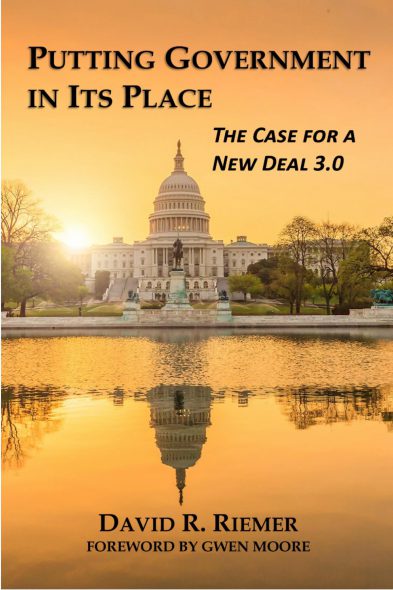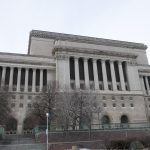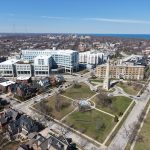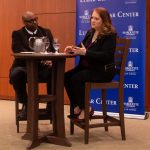Why Milwaukee Needs a New Deal
Government can work better. And cities like Milwaukee will benefit. Excerpt from a new book.
My new book, “Putting Government In Its Place: The Case for a New Deal 3.0”, (HenschelHAUS), begins on a front porch in Milwaukee.
It’s a warm June afternoon. After a hard day’s work, the porch sitter (gender neutral) is enjoying the remains of the day, eating pizza, drinking beer… and not thinking about government.
But as I proceed, I point out the dozens of ways in which government is all around. The streets, sidewalks, fire hydrants, underground water pipes and sewer pipes, garbage carts, and nearby parks and schools are all owned by government and largely maintained by government employees. Many passing vehicles—police cars, fire engines, and recycling trucks—are government-owned and driven by government everyone.
“[Government] is everywhere,” I write. “It is hiding from you in plain sight. It’s so obvious you don’t notice it. It’s so visible you see right through it. It’s omnipresent; it’s a big deal in your life; and it escapes your observation.”
This omnipresent but invisible government does a lot of good. Yet we are also deeply unhappy with many of the results we’re getting from government—especially the federal government. According to polls by the Pew Research Center, between 2008 and 2019 fewer than 30%—and at times below 20%—expressed confidence in the federal government to do what is right at least most of the time.
Alas, we have good reasons to be unhappy with government, especially the one in Washington, DC.
For nearly 45 years, the percentage of poor Americans has remained essentially flat. Men’s earnings and median family income (adjusted for inflation) have barely risen. The percentage of uninsured also remained basically the same from the mid-1970s until Obamacare. After a one-time drop, no further progress has been made.
Meanwhile, we’re not exactly delighted by the damage to the environment, workers, consumers, and investors that weak market regulation is letting corporations get away with. Greenhouse gas emissions have accelerated destructive climate change. Lead and manure foul urban water systems and rural acquifers. Workers’ wages are stolen in billions. Consumers still face the risk of tainted food. Investors are by no means safe from fleecing.
Nor are Americans pleased that government subsidies and loopholes stick them with excessive taxes while letting the super-rich and giant corporations pay far, far less than a fair share—sometimes (perhaps Donald Trump) nothing at all.
But the four distinct “policy clusters” that emerged over time in producing what I call the New Deal writ large—that is: (1) broad based economic security programs, (2) means-tested welfare programs, (3) market regulation, and (4) market manipulation—have fallen short. A blend of missing, messed-up, and mistaken federal policy—now interacting with a “new normal” of intense international competition and highly disruptive technology—has proven insufficient in achieving steady gains in economic security and an effective market.
A fundamental restructuring of the federal government in particular—what Franklin Roosevelt, during a speech in Pittsburgh in 1932, called “a complete change of concept of the functions and limits of the federal government”—is now needed. I call it the New Deal 3.0.
Two policy clusters should be greatly bolstered: broad-based economic security programs, and market regulation.
At the same time, we should eliminate two other policy clusters: means-tested welfare programs and market manipulation.
First, we should greatly widen and improve the nation’s economic security policy structure.
Over a dozen reforms are needed. Work—more work, better work—is the key. Specifically:
- Unemployed and underemployed Americans who seek 40 hours of paid work should have easy access to Transitional Jobs, paying the minimum wage, to the extent they cannot find 40 hours of paid work in the regular labor market.
- The minimum wage itself should rise to at least $10, quickly to $12, per hour, and be adjusted for inflation.
- Our system of supplementing earnings—the Earned Income Tax Credit and Child Tax Credit—should be consolidated, expanded, and shorn of their marriage penalty and work disincentive. A full-time workers should always end up with an income far above the poverty line
- Workers should have an easier time if they wish to form a union and thus bargain collectively.
- They should be guaranteed paid leave if they temporarily take a break from work to welcome a new child into their families or help an ailing parent.
- And workers should also be guaranteed free, high-quality, childcare for their younger children.
- Those whose serious disabilities prevent them from employment should get a minimum disability payment that exceeds the poverty line.
- Similarly, seniors who have retired from work on Social Security should get a minimum pension that always exceeds the poverty line.
- Since defined benefit pension plans have almost vanished, a new system of automatic savings is needed to enable younger workers voluntarily to save substantial sums for retirement.
- Whether a right or privilege, health insurance is surely a necessity. Every American should have excellent health insurance, and a choice of doctors and health care plans, within a framework that uses market incentives to drive down costs and improve quality of care.
- To enable the oldest among us to afford assisted living (at home or in a facility) or nursing home care, we should institute a national long-term care insurance program.
- Funding for K12 education should be equalized per pupil (including equal adjustments for students with special education needs). State government should assume the full cost. Students should be able to attend any school that meets rigorous standards of safety, teacher quality, and student progress.
- Finally, college education should be free, eliminating the crushing debt that millions of young Americans face. The federal government should ensure that students who qualify for college, and make adequate progress as students, receive up to four years of public college tuition that they can use at public schools (in-state or out-of-state) and accredited private schools (that accept the payment as full tuition).
A much smaller version of these reforms, according to a rigorous analysis by the Urban Institute, would cut U.S. poverty by 50% or more. The more sweeping set of reforms outlined above is capable of driving down poverty to almost zero, raising incomes substantially for tens of millions of Americans as well as improving health and education..
Second, we should wind down—and eliminate as quickly as possible—all means-tested welfare programs.
The improvement of America’s economic security structure will end the need to have a separate, tattered, unpopular welfare system that requires people to be poor, and remain so, to get money, money-like credits, or health care. As FDR urged Congress in his 1935 State of the Union Address, we should “quit this business of relief.”
The programs that should be phased out include: TANF, SNAP (Food Stamps), LIHEAP (energy assistance), housing subsidies, and Medicaid.
Third, we need to substantially strengthen federal regulation of the market to stop damage to the environment, as well as prevent harm to workers, consumers, and investors.
The United States needs to step up and do its part to halt and reverse climate change, as well as improve water quality so that water is always drinkable. The right balance between prohibition, limitation, and price signals (i.e., taxes and fees) must be found. In addition, regulatory agencies whose mission it is to prevent harm to people and firms must have the laws, rules, and resources needed to fulfill their missions.
Fourth, we ought to eliminate hundreds of billions of dollars of market-manipulating subsidies for politically favored types of consumption and investment.
Americans individuals and firms should be the “sovereign” determiners of the direction and shape of the market. No special subsidies or tax loopholes should be lavished on particular firms, economic sectors (e.g., agriculture, energy, housing, and transportation), or ways of making money (e.g., capital gains). The excessive property, sales, and income taxes paid by most American should be lowered as a result of terminating government’s pernicious role in doling out subsidies and tax loopholes to hand-picked losers and winners.
If we go about it the right way, overall spending and taxes would not increase.
And Milwaukee will be a big winner. Milwaukee has two big problems. The proposed New Deal 3.0 will help solve both.
First and foremost, the population of the City of Milwaukee has disproportionately far more unemployed, underemployed, impoverished, and low-income residents than the rest of the metro area. The economic security policies of a New Deal 3.0 will dramatically—and permanently— raise city residents’ levels of employment, earnings, and income.
Second, as we all know, there is a high level of racial segregation in housing and education in the Milwaukee area. Many parts of the City of Milwaukee are all-black, all-Hispanic, and all-white, although several areas are integrated. The suburbs are almost entirely segregated; they are virtually all-white. Because where you live still largely determines where children go to school, Milwaukee-area schools remain heavily segregated.
The proposed New Deal 3.0 will facilitate the integration of housing and schools. It will enable more black and Hispanic families to afford homes in a wider array of neighborhoods and communities, including primarily all-white neighborhoods that are now economically off-limits. Black and Hispanic children will thus be more able to attend integrated schools.
In addition, moving into central Milwaukee neighborhoods with significant black and Hispanic populations, and that are no longer overwhelmingly poor, will become a more appealing option to some middle-income—including white—renters and home buyers. The appeal of such neighborhoods will be reinforced by the knowledge that where you choose to live will not artificially limit where you can enroll your children in K12 schools.
Franklin Roosevelt, in his First Inaugural Address, demanded “action, and action now.” It’s time to start moving towards a New Deal 3.0.
David Riemer has held legal, budget, and policymaking positions with a former mayor of Milwaukee, two former governors of Wisconsin, and the late Senator Edward Kennedy.
The book Putting Government In Its Place: The Case for a New Deal 3.0 from HenschelHAUS is available at area book stores or online.























Food – farming and Urban Ag; Transportation, and energy see to be missing here???